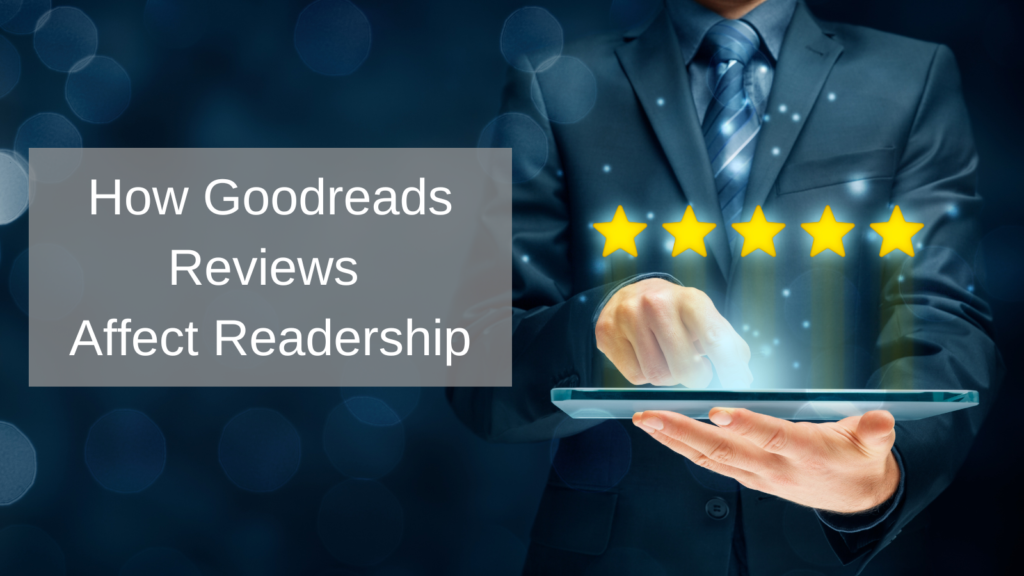by Erin Poche, Editor
There was a time, eons ago, before the advent of the Internet, when the New York Book Review, Kirkus, The New Yorker and other elite weekly journals provided the only commentary and criticism for author’s works. Back then, readers admired the cover, read the book blurb, and checked the price, but influencers’ critiques didn’t amount to near as much as they do today. Goodreads reviews affect readership and the success of a book in some instances.
The Influence of Five Stars
There’s no question that the importance of book reviews weighs heavily on an author’s success. They help market the book, gain visibility, and advance booksellers with figures on how much to stock, not to mention strengthening the author’s reputation.
Though what is the effectiveness of the various digital platforms today? Everything from hotels, restaurants, films, and Uber drivers is currently rated with stars. Let’s be honest, it’s the first thing we do before making a big purchase, whether it’s a refrigerator, car, or book. We have Rotten Tomatoes for movies, and we have Goodreads, LibraryThing, LoveReading, and Whichbook for novels.
Why is Goodreads so Influential?
Today the gold standard for the publishing industry is Goodreads, which is owned by the social media site Amazon. The multinational technology conglomerate has been referred to as “one of the world’s most influential economic and cultural forces.” Amazon Book Editors read thousands of books and recommend the best for readers’ enjoyment. On Amazon’s Goodreads platform, readers receive immediate access and an effortless way to check whether or not a book is worth their time.
So really, it’s no wonder Goodreads holds extraordinary power over publishing houses and authors. On Goodreads, which began in 2006, users can build a profile, follow other readers and authors, keep track of their books read, TBR lists, and leave written reviews and star ratings.
Questions to Ponder
Would you read a book with a majority of one or two stars? Doubtful, which is why high praise on these sites is not just the rose in the cap for authors. A good review is mandatory, resulting in high salability or death. Which is why Goodreads reviews affect readership in a very major way.
Do readers trust the reviews of peers?
Some but not necessarily all. In my experience, we tend to lean toward our own personal preferences. If I find a book I like, I’m more inclined to read the good reviews and pass over the bad ones. However, it’s harder to dismiss if the large consensus is overwhelmingly bad.
Do Goodreads Reviews Work?
Unfortunately, no system is perfect, and at times Goodreads has been slammed for spammed review botting and review bombing. Because of this, not all one-star reviews actually indicate poor book quality. But for the most part, we trust Goodreads because they are written by our contemporaries, avid readers like us.
What is Goodreads’ philosophy?
Goodreads review guidelines and mission statement are as follows: “We believe that Goodreads members should see the best, most relevant, thought-provoking reviews (positive and negative) when visiting a book page. Our job is to show members those reviews, and not show reviews that we deem not to be appropriate or a high enough level of quality.”
Goodreads encourages honest opinions, no matter if they are harsh or heartfelt. Other contingents might cause your review to receive a lower priority in the internal ranking system, which may affect if the review appears on the book page. These are multiple rankings, off-topic, irrelevant comments, self-promotion, plagiarism, or hateful speech.
Goodreads helps authors by allowing any author with a book on Amazon to earn a profile, access stats and standing for their books on Goodreads. These are all reasons why Goodreads reviews affect readership.
Do Reviews Drive Sales?
Surely visibility helps, and who’s on these sites but avid readers. It’s a form of marketing, and we know marketing works, right? Still, no studies have shown whether the reviews directly correlate to sales. It’s hard to prove the latter since many factors contribute to book deals: advertising, publisher obligation, and word of mouth.
How Do Ratings Affect Sales?
Fantasy writer Mark Lawrence received pushback on his blog when he wrote that he and other authors could figure the number of sales by multiplying the number of Goodreads ratings by ~8. Later, Lawrence said that with more recently published books, the ratio was closer to 4 due to the increase in Goodreads membership. Through his own data, he’s maintained that the number of Goodreads ratings a book has and its total sales are closely related IF the book is the same genre and of a similar age. Lawrence and others speculate that sales might, in fact, generate reviews and ratings.
Whatever the relationship, it’s undisputed that the two go hand in hand. Reviews help sales, and sales help sites like Goodreads stay active. The book lovers’ website has over 45 million active visitors a month, with a worldwide readership. The most active city in the world is Jakarta in Indonesia, and only 20 million of the 45 came from the U.S. So, whether you’re an author or reader, sites like Goodreads and Amazon are here to stay.

Bored with the same genre? Check out our other blog post “Reading Outside Your Favorite Genre“




